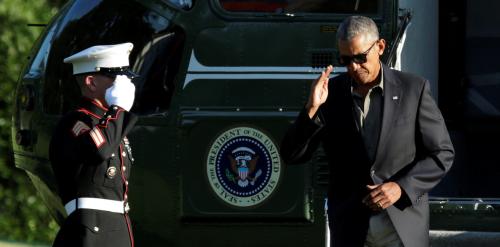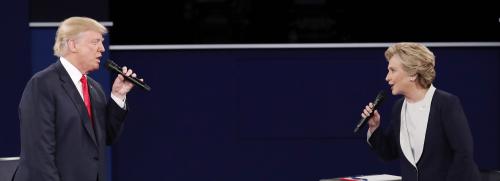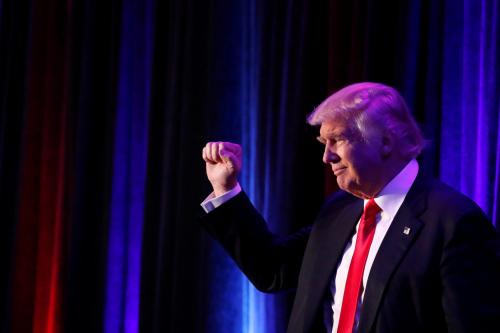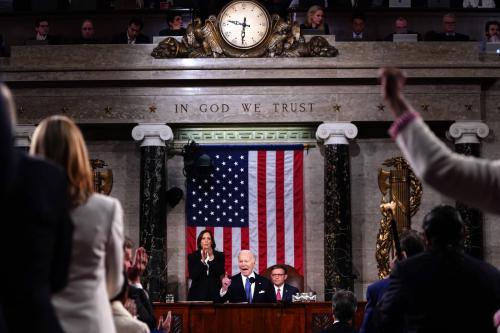Obama’s foreign policy missteps contributed, both directly and indirectly, to the sense of chaos and insecurity that drove Americans to back Trump, writes Shadi Hamid. In this sense, foreign policy and domestic politics are intimately linked, even if the links aren’t always obvious. This post originally appeared on PBS Newshour.
There will be a lot of hand-wringing (including from people like me) about what Donald Trump’s presidency will mean for America’s image as well as for the health of an already flailing international order. But it would be a mistake if we held Trump to a standard that many foreign policy analysts were never willing to hold President Obama to.
Trump voters were motivated by a lot of things, but polling data and exit polls suggest that they cared more about terrorism, refugees and immigration more than Clinton voters. These are the sorts of things that fall under the general category of perceived “insecurity.” And insecurity drives sensible, good people—who by virtue of being American understand the dangers of strongman politics—to vote for someone who epitomizes strongman politics. In this sense, Obama’s foreign policy missteps—particularly the mishandling of the Syrian humanitarian catastrophe and the failure to intervene against Assad in 2012 or 2013—contributed, both directly and indirectly, to the sense of chaos and insecurity that drove Americans to back Trump (as well as Britons to back Brexit). In this sense, foreign policy and domestic politics are intimately linked, even if the links aren’t always obvious.
Obama’s foreign policy missteps—particularly the mishandling of the Syrian humanitarian catastrophe and the failure to intervene against Assad in 2012 or 2013—contributed, both directly and indirectly, to the sense of chaos and insecurity that drove Americans to back Trump (as well as Britons to back Brexit).
President Obama, as much as he seemed to dislike Putin, effectively ceded Syria policy to Russia and Iran. The regime of Bashar Assad gained significant territory and began rehabilitating its international image over the past year, something that is now only likely to intensify now that a Hillary Clinton presidency is out of the picture. Clinton had expressed support for stronger action against the Assad regime, including establishing no-fly zones and safe zones. Trump, considering his desire for rapprochement with Russia, is likely to support no such thing.
In fact, the very notion of “America first” suggests a much more narrow conception of what constitutes “vital” American interests. It will include protecting the homeland from terrorism and targeting ISIS, but little in the way of promoting human rights and democracy abroad. In this respect, some of the biggest losers of the American election will be those in the Middle East and elsewhere, who will now find themselves with fewer protections and less international support in the face of newly emboldened autocrats.







Commentary
Trump and the linkage of domestic and foreign politics
November 9, 2016